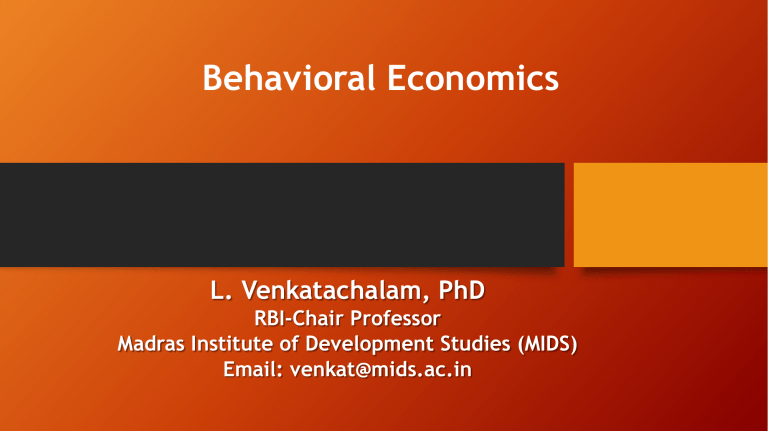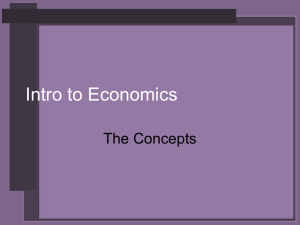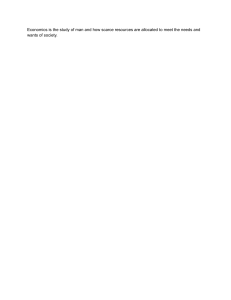
Behavioral Economics L. Venkatachalam, PhD RBI-Chair Professor Madras Institute of Development Studies (MIDS) Email: venkat@mids.ac.in Evolution of ‘Theory of Mistakes’: • Mainstream Economics: Unbounded rationality–Axioms of Preferences - Big-bills theory (Robert Lucas) –human brain works like a ‘super-computer’. • If individuals are not rational? It is negligible, market will punish them to correct, a few super-rational individuals are enough to bring rationality among all (Chicago School, etc) • Friedman’s positive methodology –prediction of theories is important, not the assumption behind it! • Laboratory experiments (Vernon Smith, Daniel Kahneman, Charless Plott, John List, Jason Shogren, etc) • Field Surveys by environmental economists (Robert K. Davis, Robert Mitchell, Richard Carson, Dale Whittington, Elinor Ostrom, etc) • Finding: ‘Actual behavior’ of individuals significantly deviate from assumed behavior in a systematic and predictable manner Three schools of thought: • A) Rationality and preferences do not exist and neoclassical theory is wrong (Herbert Simon, Gerd Gigerenzer, etc) • B) Neoclassical theory is valid but, the experiments and field surveys are poor(Peter Diamond, Richard Hausman, Ariel Rubinstein, etc) • C) Anomalies in the neoclassical theory, which should be addressed (Richard Thaler, Mathew Rabin, Jason Shogren, Michael Hanemann, etc) • Consolidated ideas from A and C form ‘behavioral economics’ but, there are differences between A and C! Bounded Rationality: • Individuals are constrained by their cognitive abilities and the decision environment does matter for analyzing the decision. • Individuals very often utilize heuristics and rule of thumb, rather than using intuitive reasoning –procedural rationality • Framing, scope effects • Targeting or satisficing (Behavior of New York Maxi cab drivers) • Self-control problem –hyperbolic discounting and preference reversal • Endowment effect –Coase theorem does not work • Mental Accounting –no income pooling, borrowing at high cost • Social preferences –fairness, dictator and ultimatum game Criticisms: • Nudging aims to change the behavior into rational which in turn is being criticized by Thaler! • When nudging becomes noodging, the individuals drop all nugdes including the good ones • Welfare from individual point of view and not from the policymaker’s point of view • Government consists of irrational individuals and they are not capable of nudging the ordinary people • Government may nudge the individuals to serve their own interest Is behavioral economics an alternative to neoclassical economics? • Libertarian paternalism –nudging without affecting the individual freedom • The BE is about theory of mistakes, complementary to neoclassical economics • Imre Lakatos: Core and Protective Belt Thank you



